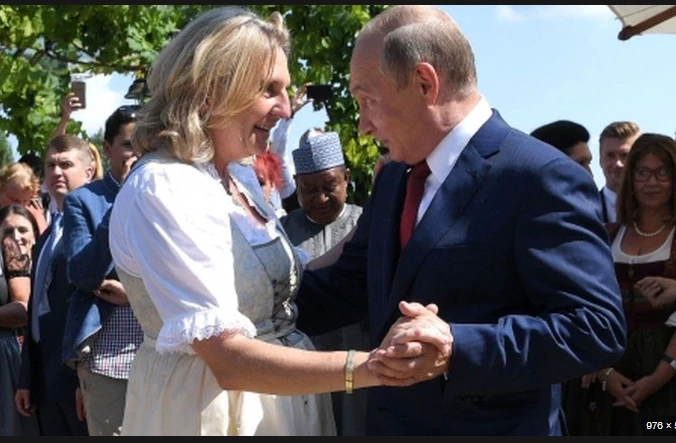Spy arrest puts Cold War spotlight back on Vienna

Stay tuned with 24 News HD Android App

The arrest of a former Austrian intelligence officer on suspicion of spying for Russia has put a spotlight on Vienna as a spy nest in a new era of East-West confrontation.
The Austrian capital was long a hotbed of spy activity during the Cold War. And Chancellor Karl Nehammer last week urged heightened security, calling a National Security Council meeting on Tuesday to "assess and clarify the security situation" following the "serious accusations" against Egisto Ott.
Ott -- a former intelligence service employee suspended in 2017 -- was arrested on March 29 and accused of "systematically" providing information to the Russian secret services, according to information from the public prosecutor's office quoted by the APA press agency.
Ott was detained after British authorities seized written messages exchanged between on-the-run tycoon Jan Marsalek and a suspected spy arrested in Britain.
Marsalek is the Austrian former chief operating officer of payments firm Wirecard, who became a wanted man in Germany over fraud allegations.
He fled Germany in June 2020 through Austria and is believed to be in Russia.
- Lax spy laws -
There are other signs of a return to Vienna's coffee house espionage reputation that it has never really lost.
While Russian President Vladimir Putin has been waging a war against Ukraine for more than two years, "moles" are still operating in Vienna, according to a source close to the Austrian intelligence services interviewed by AFP.
Austrian media reports have said Ott helped carry out Marsalek's work for Russia in Austria, including spying on a reporter investigating Moscow's spy networks who left Vienna after a break-in to his apartment.
In the latest case, Ott -- who was previously arrested in 2021 but then released -- has also been accused of passing the smartphone data of three senior government officials to Russia in return for payment.
Contacted by AFP before his arrest, Ott denied he had spied for Russia.
The Alpine country of nine million -- host to multiple UN agencies -- has traditionally seen itself as a bridge between the East and West, but has been known for its past cozy relations with Russia before the 2022 invasion of Ukraine and its lax spy laws.
"We have been for decades much too Putin friendly," historian and intelligence service expert Siegfried Beer told AFP.
The government has scrambled to contain the scandal, with Interior Minter Gerhard Karner promising a "complete clarification" following the arrest.
Conservative Chancellor Nehammer has suggested the strengthening of the intelligence services, while his justice minister Alma Zadic, from the Greens, wants to amend the law to widen prosecutions for spying.
"Legal loopholes have so far made it possible for foreign intelligence services to spy in Austria with impunity. We have to close these," Zadic said, describing Austria as accused for decades of being "an island of blessings for secret and intelligence services from all over the world".
Beer also evoked Austria's "weak" intelligence service with recruits from police and military ranks rather than elite universities. He estimated that there are some 7,000 foreign agents in Vienna, which is a "favourite place" because of its high quality of living.
- Far-right links -
The revelations following Ott's arrest have refreshed accusations against the far-right FPOe (Freedom Party), currently leading polls ahead of elections expected in September.
Nehammer last week warned Austria had to prevent Russian spy networks from "infiltrating or exploiting political parties or networks," referring to the FPOe.
The party has dismissed all accusations, pointing out to AFP that it let a "cooperation pact" with Putin's party expire in 2022.
It was under current FPOe leader Herbert Kickl's time as interior minister in 2018 that authorities raided the country's intelligence service, seriously damaging its reputation.
The then FPOe-appointed foreign minister, Karin Kneissl, in 2018 made headlines when she invited Putin to her wedding, where she danced with him.
Beer said he doubted the current scandal would dent the FPOe's support.
In the past, several cases -- including deaths of high-profile figures -- have raised eyebrows.
A former Jordanian intelligence chief, a former Libyan oil minister and the disgraced ex-son-in-law of a Kazakh president all died in Austria. No foul play was officially found in any of the cases.
